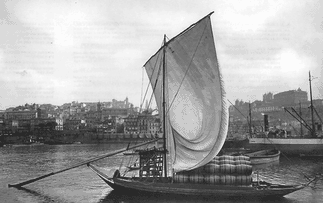
|
Summer School Grand Iberian Tour
2004
UH 440, UH 300, UH 499
Course requirements:
1. Complete the 4 assignments (20%) during spring
semester 2004 by the due dates.
The four initial research assignments are meant to procure a varied
set of information materials in order to provide a broad introduction
to cultural matters regarding the two countries.
2. Final project: Research paper (30%) on topic
provided by instructor.
Choose one of the five proposed topics, or justify own proposal,
in order to generate a substantial research paper according to the
Guidelines for Critical Thinking and Writing. The aim of the paper
is to demonstrate significant, critical familiarity with the topic
within a theoretical, historical and/or cultural context. Final
paper due August 2004. Include outline of content and bibliography.
Initial outline to be produced by July 15, 2004.
• UH 440: Minimum of 12 pages, typed, double-spaced.
• UH 300: Minimum of 8 pages, typed, double-spaced.
Contact hours:
Based on a 3-credit course workload (15 weeks x 3 contact hours
= 45 + 15 weeks x 3 x 2 student preparatory hours = 90, = a total
of 135 hours of contact hours and student course preparatory work)
divided between faculty contact hours and individual student preparation,
this course represents the following intensive student to faculty
contact hour ratio:
During travel class will on a daily basis spend a minimum of
8 hours with the instructor evaluating artworks, experiencing/interpreting/processing/
traversing cultural life. (8x14 (days of travel) = 112 contact
hours). In addition to this, a minimum of 6 contact hours prior
to departure: 112 + 6 = 118 contact hours. The remaining 17 hours
will have been spent researching Assignments #1-4, as well as
with Journal writing during the Tour, and will be spent during
the student’s preparation of the research paper. (This final
process will undoubtedly incur more individual faculty-student
contact hours, either face-to-face, or online.)
The calculations above obviously pertain to the UH 440 3-credits
model of this course (Please review the paragraph above regarding
the common sense reasons for the course prefix set up.) Due to
the particular nature of this class, involving not only a number
of social and psychological variables associated with group travel
in a foreign environment, but also a different, more hands-on
dimension of academic learning, it is practically impossible,
and makes even less sense, to artificially construct a 2-credit
contact hour model, and insist that the UH 300 students (2 students),
or UH 499 students (4 students) adhere to it. It makes much more
educational sense, and in regards to the particular conditions
of this course it is much more pedagogically sound, to allow those
students to perform and participate at a higher level during the
class sessions on location. The difference in UH 440, UH 300 and
UH 499 course requirements are sufficiently expressed in the different
length requirements of the written course work:
Prefix/Research paper/Journal
UH 440: 12 pages/20 pages
UH 300: 8 pages/15 pages
UH 499: none/10 pages
(Besides, it is this instructor’s pedagogical philosophy and
educational policy that considerations of the above quantative nature
only hold nominal value. E.g., I will gladly accept a 10 page research
paper from a UH 440 student – if it is brilliant; as I likewise
gladly will evaluate 18 pages from a UH 300 student should her investigative
excitement creatively carry her away. This, I consider, the professional
privilege of a teacher.)
3. Travel journal. (30%) Document your Iberian
experience in text, photos, and memorabilia. UH 440, inimum 20 pages,
typed, double spaced; UH 300, minimum15 pages; UH 499, minimum 10
pages.)
4. Travelmanship. (20%) Exercise of sensible,
good “Travelmanship.”
During the course of travel I expect participants to (1) travel
with the knowledge that their experiences require academic contemplation
and formulation, (2) be respectfully and sensibly cognizant of being
in a foreign culture whose modes of communicative interaction differ
from what the traveler considers “norm,” (3) be sensitive
to and supportive of group sentiments and interests, (4) demonstrate
a constructive and respectful demeanor towards the overall and daily
tour itinerary, and in particular towards the instructor, (5) travel
with the up-beat resilient attitude that change or improvisation
in regards to itinerary, due to issues of transportation or other,
may be necessary, as determined by the instructor, and finally (6)
exercise all of the above while having fun. These six components
of good Travelmanship constitute a solid foundation for a productive
experience.
|